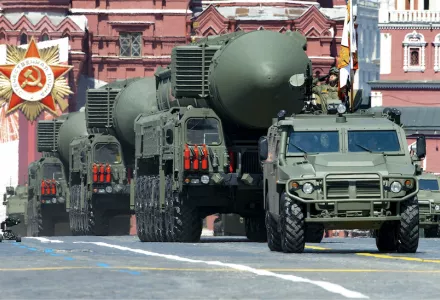New START: The Future of Arms Control Diplomacy and U.S.-Russian Relations
The extension of New START – the last remaining treaty limiting U.S. and Russian nuclear forces -- sustains verifiable limits on Russian nuclear weapons that can reach the United States for the next five years. Can that time be used to negotiate a follow-on accord that serves both sides interests? With the collapse of the INF Treaty following Russian cheating and U.S. withdrawal, what can be done to address threats to U.S. and Russian security posed by INF-range missiles? What other key issues need to be addressed in strategic stability talks – with Russia, with China, or with others? How can the world community best address the danger of nuclear proliferation – especially when ongoing nuclear modernization in all of the nuclear-armed states is adding to long-standing tensions between nuclear haves and have-nots? Could the United States and Russia revive their past cooperation to control proliferation and prevent nuclear terrorism? Given the challenging relationship between Russia and the United States, Russia’s violations of some arms control agreements, its annexation of Crimea and military and cyber incursions and provocations along its border and beyond – and Russia’s equally long list of complaints about the United States – what might strategic arms diplomacy look like in the future? How can the proposed U.S.-Russia Summit advance arms control, nonproliferation, and a broader working relationship between the two countries?
Please join the Future of Diplomacy Project (FDP) and the Project on Europe and the Transatlantic (PETR) relationship for a conversation with former NATO Deputy Secretary General, Rose Gottemoeller, Harvard Kennedy School Professor Matthew Bunn, and FDP Senior Fellows, Ambassadors Paula Dobriansky and Doug Lute, moderated by Faculty Chair, Nicholas Burns.
This event is co-sponsored by the Project on Managing the Atom and by Russia Matters.

